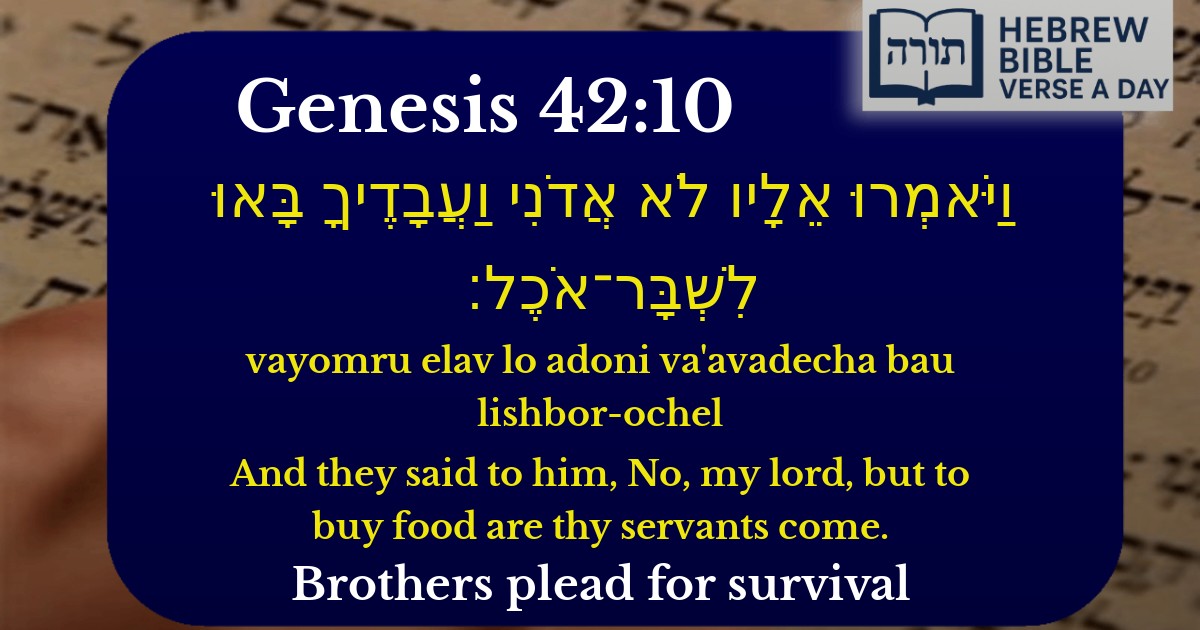Join Our Newsletter To Be Informed When New Videos Are Posted
Join the thousands of fellow Studends who rely on our videos to learn how to read the bible in Hebrew for free!
Hebrew Text
וַיֹּאמְרוּ אֵלָיו לֹא אֲדֹנִי וַעֲבָדֶיךָ בָּאוּ לִשְׁבָּר־אֹכֶל׃
English Translation
And they said to him, No, my lord, but to buy food are thy servants come.
Transliteration
Vayomru elav lo adoni va'avadecha bau lishbor-ochel
Hebrew Leining Text
וַיֹּאמְר֥וּ אֵלָ֖יו לֹ֣א אֲדֹנִ֑י וַעֲבָדֶ֥יךָ בָּ֖אוּ לִשְׁבׇּר־אֹֽכֶל׃
וַיֹּאמְר֥וּ אֵלָ֖יו לֹ֣א אֲדֹנִ֑י וַעֲבָדֶ֥יךָ בָּ֖אוּ לִשְׁבׇּר־אֹֽכֶל׃
🎵 Listen to leining
Parasha Commentary
📚 Talmud Citations
This verse is not quoted in the Talmud.


Context of the Verse
This verse (Genesis 42:10) appears in the narrative where Yosef's brothers come to Egypt to purchase grain during the famine. Unbeknownst to them, they are standing before their brother Yosef, who recognizes them but conceals his identity. The brothers respond to Yosef's accusation that they are spies by insisting they have come solely to buy food.
Rashi's Commentary
Rashi explains that the brothers' response, "No, my lord" (לֹא אֲדֹנִי), is a respectful denial of Yosef's accusation. They emphasize their humble intentions by referring to themselves as "thy servants" (וַעֲבָדֶיךָ), demonstrating deference to the Egyptian ruler (whom they do not recognize as Yosef). Rashi notes that their language reflects their sincerity and lack of ulterior motives.
Midrashic Insights
The Midrash (Bereishit Rabbah 91:6) highlights the brothers' humility and honesty in their response. Despite their noble lineage as sons of Yaakov, they present themselves as mere servants seeking sustenance. This mirrors the principle of אמת ואמונה (truth and faithfulness) in dealing with others, even in a foreign land.
Rambam's Perspective
Rambam (Hilchot De'ot 5:7) teaches the importance of dignified speech and respect for authority, as exemplified by the brothers' address to Yosef as "my lord" (אֲדֹנִי). Their conduct aligns with the ethical imperative to speak truthfully while maintaining proper decorum, especially when interacting with those in power.
Key Themes